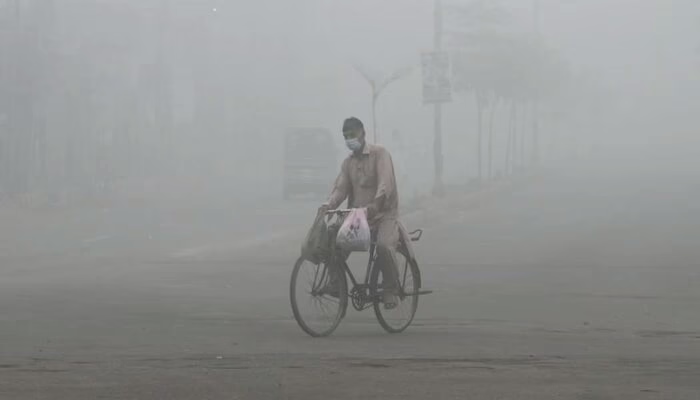Pakistan ranks among the top five countries with the worst air quality, posing severe health risks to its population. Cities like Islamabad and Peshawar are particularly vulnerable, with hazardous air pollution levels threatening public health and life expectancy. According to a recent study titled Air Pollution’s Deadly Impact on Health in Pakistan by the Sustainable Development Policy Institute (SDPI), addressing this crisis requires immediate action.
Read: Green Credit Programme Encourages Lahorites to Fight Climate Change
Disturbing PM2.5 Levels
The study revealed that Pakistan’s average Air Quality Index (AQI) in 2023 stood at 160, with PM2.5 levels 14.7 times higher than the World Health Organization’s (WHO) recommended limits. PM2.5 particles, which are less than 2.5 micrometers in diameter, are the most dangerous pollutants due to their ability to penetrate deep into the lungs and bloodstream, leading to severe health complications.
Health Impacts of Air Pollution
Air pollution in Pakistan contributes to approximately 256,000 premature deaths annually and reduces life expectancy by nearly four years. Vulnerable groups, including children, the elderly, pregnant women, and individuals with asthma or heart conditions, face the highest risks. The study highlighted how prolonged exposure to PM2.5 increases the prevalence of non-communicable diseases (NCDs) such as ischemic heart disease (IHD), strokes, and lung cancer.
City-Specific Findings: Islamabad and Peshawar
The research focused on Islamabad and Peshawar, revealing alarming trends in both cities. In Peshawar, air pollution significantly contributed to deaths caused by IHD, strokes, and lung cancer. Islamabad also showed a high correlation between PM2.5 exposure and mortality rates from respiratory and cardiovascular diseases.
Short-term exposure to high PM2.5 levels can trigger acute respiratory infections and exacerbate chronic conditions like asthma and Chronic Obstructive Pulmonary Disease (COPD). Long-term exposure increases the risk of heart attacks, strokes, and cancer, emphasizing the urgent need for intervention.
Need for Better Air Quality Monitoring
The report called for improved air quality monitoring and data collection to understand the full health impacts of air pollution. Using the WHO’s AirQ+ tool, researchers projected health outcomes, even in the absence of detailed city-level health data. Localized data is critical to designing effective strategies to combat this crisis.
Recommendations for Action
The study emphasized a multi-faceted approach to tackle air pollution. Strengthening air quality monitoring systems, updating health data, and linking pollution control measures with public health strategies are essential steps. Dr. Razia Safdar, the study’s lead researcher, also advocated for stricter emission standards and the adoption of cleaner technologies in industrial and transportation sectors.
The National Clean Air Policy (NCAP), approved in 2023, marks progress, but its success depends on provincial governments implementing city-specific action plans. Urban centers like Islamabad and Peshawar must prioritize reducing emissions and enhancing public awareness to address the crisis effectively.
A Call for Immediate Action
Pakistan’s worsening air quality crisis demands urgent attention. Without targeted policies and sustainable interventions, millions of lives remain at risk. Cleaner technologies, stricter regulations, and a collective effort from policymakers and citizens can pave the way for a healthier future.
Follow Day News on Google News, Instagram, YouTube, Facebook, Whats App, and TikTok for latest updates
